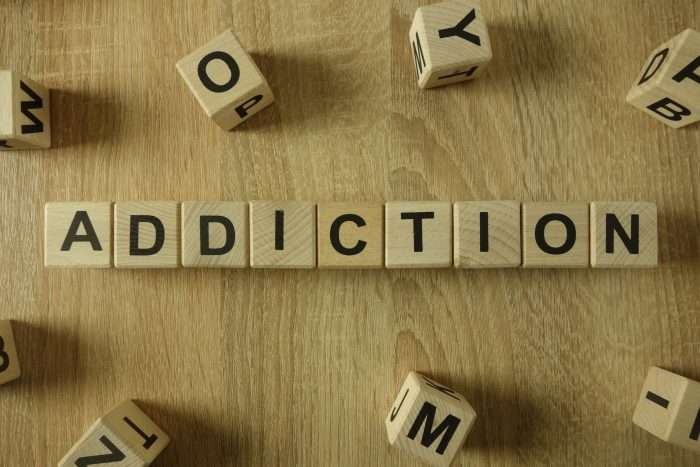Understand What Drug Addiction Is, First
When you take enough drugs, to the point where you cannot stop on your own, then you are addicted because you must have them. The desire, the habit, and the need to have these drugs can also push you to look for replacement drugs from unsuitable outlets. You may feel driven to ask a family member for money to get the drugs, or you may rob someone to get the money to buy drugs.

The drugs you are using can be illegal drugs, such as heroin or cocaine, or they may be legally prescribed drugs, such as pain pills, usually opioids. Once you are past the point of not being able to wean yourself off these drugs on your own, then you need medical help and a support group to help you recover your life.
When you are addicted to drugs, not only is it a psychological need to obtain drugs, your body, through chemical changes, also needs it. If you do not get the drugs, you will go into physical (and mental) withdrawal symptoms which are very painful and dangerous, if alone. First, admit to yourself that you have a serious problem, especially when your problem becomes everyone’s problem. These are the people that live with you and your friends, all of whom see the changes in your personality.
Your Steps to Recovery
If you have a doctor, make an appointment, and discuss with the doctor what is going on. You can also go to Drug Rehab Clinic in San Diego, CA if you do not have a regular family doctor. The doctor will assess your physical status and ask you several questions to determine your mental thinking regarding drugs. Your doctor may decide you should go through a recovery session at a rehabilitation center.
Once you visit the center and decide if this is the place to go, you become an in-patient and will undergo a thorough assessment, including medical tests and body exams. You will talk with a behavioral counselor about your state of mind, what stresses you have in your life, how your family relationships are, and more.
Your family members may also be invited to attend this initial review if you are willing to have them there. The alternative is to have your family meet with the counselor alone to talk about what they have experienced with your addicted self.
The Withdrawal Program
The journey to recovery physically begins when you begin the withdrawal program. This can take up to two weeks, even more, if it is a dangerous addiction. There will be 24/7 monitoring of your physical symptoms and if you need medical help to get past the addiction, you will receive drugs or some other treatment that helps you get through it. Your counselor will encourage you to stay focused while going through this part of the program.
The physical symptoms of withdrawal may be fatigue, muscle pain, restlessness, shakiness, sleeping problems, vomiting, and more. If you have been on drugs for a long time, you may have more serious symptoms, such as:
- Hallucinations,
- Delirium,
- Seizures, and
- Dysphoria (symptoms associated with mental illnesses, such as depression, anxiety, etc.).
During this time, you may feel like you are losing a “friend” from your life. Your mental outlook may seem bleak, and you have little hope for the future. By the end of two weeks (or more), your thoughts may become more positive as your physical symptoms and chemical body makeup return to normal.
Aside from the withdrawal program in the center, as an in-patient, you are removed from any triggers (home life, work-life, daily routines) which could interfere with your progress in recovery. Once you are past the initial withdrawal symptoms stage, you begin your behavioral counseling sessions which help with discussing your thoughts and will help with retraining or rewiring how you think, so you do not succumb to your old addiction triggers.
Life After Recovery
Once you have met all the goals of your customized treatment program, the center says you can return home. In this final stage of recovery, you are an out-patient who attends regular meetings to ensure the recovery outcome stays in place and you do not return to taking drugs. Here are a few tips from the Gateway Foundation online to help you stay the course to full recovery.
- Remove “friends” who encouraged you to take drugs. They are not your friends.
- Eliminate any toxic relationships, including difficult employers. Find another job instead.
- Have productive and encouraging talks with family members and ask for their help.
- Take up hobbies and level up training on how to do those hobbies better. It is all about building time for enjoying your life, no matter how bad a painter or writer you are.
- Encourage yourself every day by reading positive books. Take up meditation, and yoga, start an exercise program, take bicycle rides in nature, whatever makes you happy.
- Avoid getting stressed out over small things. It all passes away at some point.
- Adopt a pet or two. Dogs give unconditional love, and so do cats if you provide food on demand. In truth, watching animals interact with each other, and you can provide many moments of love and happiness.

Get Help When You Need It Most
Our drug detox centers in San Diego, CA can help you with any substance addiction and/or mental issue you might have so you can regain a happy and functional lifestyle again. Call us for a free consultation and to set up an appointment to start getting help as soon as possible. 619-350-8220.


